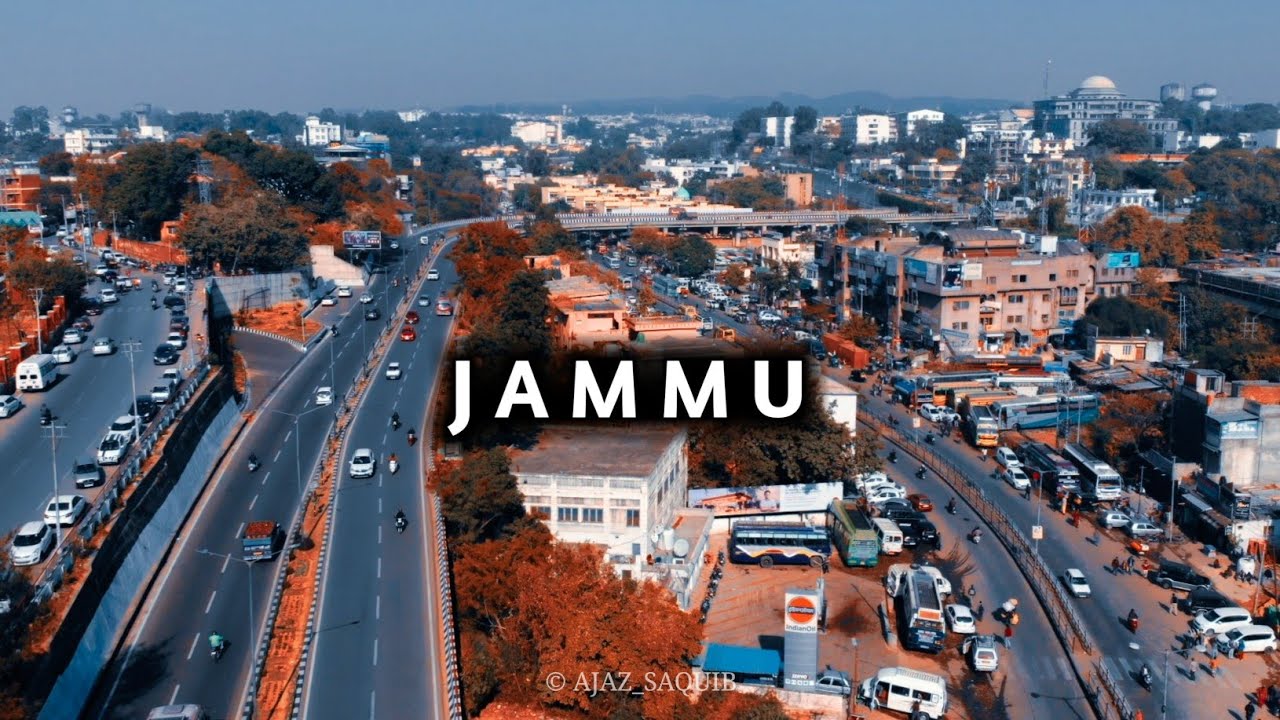
The developments in Jammu & Kashmir, particularly in the Jammu Division, have been transformative, especially following the abrogation of Article 370 in August 2019. This move, which removed the special status previously granted to the region, has allowed for deeper integration with the rest of India and unleashed a wave of infrastructural, economic, and social reforms. Here’s a detailed breakdown:
Infrastructural Development:
One of the most visible and impactful changes in Jammu Division has been the improvement in connectivity, which has had a cascading effect on other sectors:
Chenani-Nashri Tunnel (Dr. Syama Prasad Mookerjee Tunnel): This all-weather tunnel, one of India’s longest road tunnels, has significantly reduced travel time between Jammu and Srinagar. It has enhanced connectivity between the Jammu Division and the Kashmir Valley, fostering both economic activities and tourism.
Rail and Air Connectivity: The work on the Udhampur-Srinagar-Baramulla rail link is ongoing and, once completed, will further boost integration and economic potential.
Roads and Highways: Improved road infrastructure has not only connected remote areas within Jammu but has also linked it more efficiently with major cities and industrial hubs, fostering regional development.
Industrial Growth and Economic Reforms:
Jammu Division has also seen growth in industrial sectors that were previously underdeveloped:
Industrial Zones: The creation of industrial zones in areas like Samba, Kathua, and Udhampur has attracted investments and increased employment opportunities. New businesses and industries have emerged in these regions, benefitting from favourable policies post-Article 370.
Ease of Doing Business: With the removal of restrictions that previously hindered outside investment in the region, Jammu has seen an influx of industries. The government has introduced policies to encourage private sector investment, which has played a key role in boosting the local economy.
Agriculture and Horticulture: The government has also promoted modern agricultural practices, and horticulture has emerged as a significant sector. Schemes to support small farmers, improve irrigation, and boost exports of regional produce have been put in place, diversifying the economy.
Tourism:
Historically, tourism in Jammu was primarily driven by pilgrimage sites such as Vaishno Devi, one of the most visited shrines in India. While pilgrimage tourism continues to thrive, there has been a concerted effort to diversify the tourism sector:
Adventure Tourism: Jammu’s scenic landscapes, rivers, and hills offer great potential for adventure tourism. Trekking, river rafting, and paragliding are some of the activities being promoted to attract adventure enthusiasts.
Eco-Tourism: Jammu has untapped natural beauty in places like Patnitop, Mansar Lake, and Bhaderwah, which are being developed as eco-tourism destinations. This shift helps spread tourism beyond religious centers, providing more employment and boosting local economies.
Social Empowerment:
Post the abrogation of Article 370, several social reforms have taken place, benefitting marginalized communities:
Reservation Benefits: Communities that were previously excluded from reservation policies, such as the Valmikis and Gorkhas, are now receiving benefits, including educational reservations and government job opportunities.
Property Rights and Laws: Women in Jammu & Kashmir now have equal property rights, correcting a historical gender imbalance. Furthermore, various national-level laws concerning child rights, labour laws, and social justice are now applicable in the region, leading to greater social inclusivity.
Delimitation: The delimitation process, which redraws the boundaries of electoral constituencies, has rectified the political imbalance that previously favored the Kashmir Valley over Jammu. This has given the Jammu Division a greater say in regional politics and ensured more equitable representation in the legislative assembly.
Education and Healthcare:
The region has seen substantial improvements in its education and healthcare sectors:
IIT Jammu and AIIMS: The establishment of premier institutions like IIT Jammu and AIIMS has raised the profile of Jammu as an educational and medical hub. These institutions not only provide local residents with high-quality education and healthcare but also attract students and professionals from across India, boosting the local economy.
Political Opportunities:
The upcoming elections present a crucial opportunity for the people of Jammu & Kashmir, especially Jammu Division, to build upon these developments. With political reforms and delimitation in place, Jammu Division now has greater political influence. Voters can elect representatives who will prioritize their region’s specific needs, such as continued infrastructure development, economic growth, and social justice. Stable, development-oriented governance will be key to addressing remaining challenges, such as economic inequality, environmental concerns, and further improving security.
In conclusion, the removal of Article 370 has set Jammu Division on a new trajectory of growth and integration. With infrastructural projects, industrial growth, and social reforms in full swing, the region is poised for further progress.
However, the upcoming elections and the continued focus on inclusive, development-oriented governance will play a critical role in ensuring that the region’s growth benefits all sections of society and secures a prosperous future





Indeed it’s true picture of new UT of Jammu and Kashmir .Very well captured by author.
“Kudos to the author for this insightful and well-researched article on the renaissance of Jammu post abrogation of Article 370! Your nuanced perspective and in-depth analysis have shed light on the transformative changes unfolding in the region. The abrogation of Article 370 has indeed ushered in a new era for Jammu, marked by unprecedented growth, development, and integration with the rest of India. Your article has aptly captured the essence of this transformation, and I appreciate your efforts in highlighting the opportunities and challenges that lie ahead. Keep up the great work!”
Excellent analysis
💯💯
Quiet interesting and informative. Special thanks to Shivani Vaid ma’am for the portrayal of her expertise here in words.
This article literally indulged me to dive more into the history of Jammu and how it’s moving towards a developing side day by day. Your writing and work truly always inspire me alot. I’ll continue to look forward to read more about our DIVERSIFIED JAMMU.
Nice content..To know more about Jammu, we want people like you who open the eyes of the society.keep writing and make common man aware.
Good write up summary on the milestones!! Wondering if a similar impact was seen in Kashmir and Ladakh as well!!!
Very insightful, inclusive, ultrafine and factual analysis dear ma’am. The tonality of the article is highly imperative and portrays,the author, as a keen observer, an intricate thinker and moreover a responsible citizen.
You have explained everything very well, hope this development continues further.Thanks for explaining all these things in detail and keep giving us such information in future also.
Great content.
Keep it up.
The abrogation of Article 370 remains a contentious issue, seen by its supporters as a necessary step for national unity and development, while its critics view it as an undermining of democracy, autonomy, and constitutional principles.But Shivani maam has explained the long-term impact on the region’s stability and it’s progress which is still unfolding.